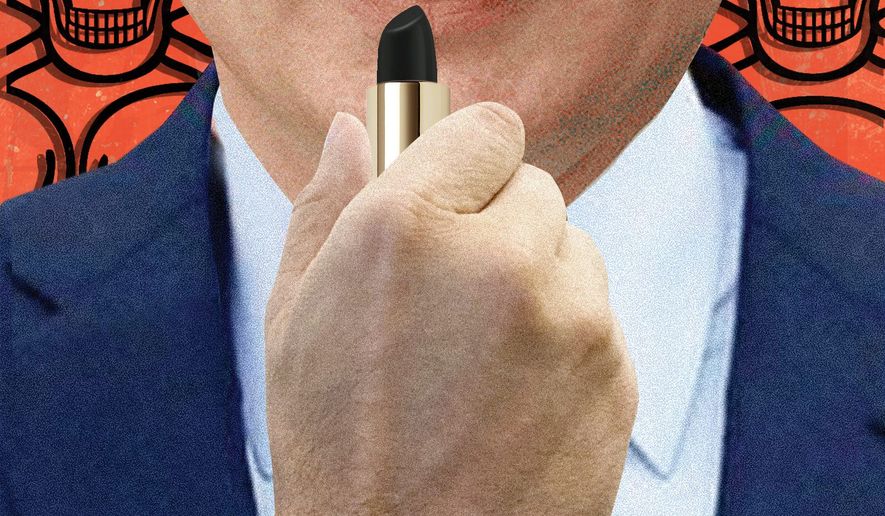OPINION:
Back in April 2017, I wrote that “our politics has given (Vladimir) Putin the weapon to create a constitutional crisis.”
At that time, pressure for a special counsel to investigate “collusion” between the Trump campaign and the Kremlin was reaching a fever pitch. President Trump’s media critics and opponents on both sides of the aisle would be gratified a month later by the appointment of Robert Mueller as special counsel.
Mr. Trump’s many enemies were further gratified when Mr. Mueller extended his investigation beyond the original Russian collusion charge. After one and a half years of delving into issues peripheral to collusion, there is no end in sight of the Mueller investigation. The American political class sits on tenterhooks waiting to see whether Mr. Mueller can bring down Mr. Trump. In my earlier article, I warned that it was Russian President Vladimir Putin who had the ways and means to destroy Mr. Trump, thanks to the U.S. media, bureaucrats and elected officials.
In my 2017 article, I warned that the media hysteria and political jockeying over what was then called “Russia gate” would give Mr. Putin powerful leverage to instigate a constitutional crisis that would create chaos in the U.S. political system for years to come. All Mr. Putin had to do was to wait for the right moment to say cryptically and without offering proof that Russia had helped Mr. Trump win for the good of both countries and that Mr. Trump was grateful.
If that happened, the media and Mr. Trump’s many political enemies would jump on Mr. Putin’s statement as gospel truth, and the din for Mr. Trump’s resignation or impeachment would be overwhelming.
Mr. Putin has yet to resort to this nuclear option, but here is its scenario as spelled out by a Russian journalist, Sergei Parkhomenko, in an interview from February 2017:
“(Trump’s) problem is that Putin can come out and say: ’Well, yes, we helped Trump. We really like our Donald Donaldovich. He is a very nice man, and we decided to help him. We helped him here, here, here and there. We didn’t have much success, but we helped; yes we helped. And he is paying us back in some fashion.’ For Trump this would be a catastrophe because he cannot prove a negative.”
London-based Russian historian, Vladimir Pastukhov, writing immediately after the Trump-Putin Helsinki summit, explains Mr. Putin’s timing on deploying the nuclear option against Mr. Trump. Putin’s Plan A is to first test the waters to see if he can reach deals with Mr. Trump on the hot button issues of Crimea, Syria, and Ukraine. However, once Mr. Putin determines that no deal will be forthcoming, he will go to Plan B of destroying Mr. Trump by admitting in some form or another that they colluded to swing the election away from Hillary.
As Mr. Pastukhov puts it: “If Trump finds himself in more difficulty and if the Kremlin can leak things that add to his problems, Putin may change course by creating unbearable conditions for Trump and thus weakening him and the U.S. further. Moscow today has more effective levers of influence on domestic politics in the U.S. than destroying voting machines. It can spread stories which will make it more difficult for Trump to focus on anything but his own political survival and that works for Putin and his plans.”
Some might argue that, if Mr. Putin wanted to deploy Plan B, he would have done it in the media spotlight of Helsinki. Mr. Putin indeed hinted at Plan B in Helsinki, when he declared that he wanted Mr. Trump to win, but that was as far as he was prepared to go. Mr. Putin would reserve his faux admission until he decides that he will get more by destroying Mr. Trump than by waiting for a favorable grand deal from Mr. Trump.
Some in the West might think that Mr. Putin cannot resort to such a faux admission because he has forcefully denied (to use Mr. Trump’s words) any interference in the U.S. 2016 election. In the past, Mr. Putin has not hesitated to change his story when politically expedient.
For example, Mr. Putin bragged that he had ordered the annexation of Crimea despite months of telling the world that it was a spontaneous action of the Crimean people. Mr. Putin also admitted the presence of Russian intelligence forces in Ukraine despite assurances of absolutely no Russian troops in Ukraine.
Mr. Trump’s many critics claim that he has gone easy on Mr. Putin because Mr. Putin has something on him. In my view, the “something” is Mr. Putin’s ability to sink the Trump administration in a constitutional crisis via a false admission of collusion. Mr. Putin would find in the U.S. media and among Mr. Trump’s many enemies on both sides of the political aisle willing accomplices.
Yes, Mr. Putin has the leverage. Thank you, political class. Remember my words when Mr. Putin pulls this rabbit out of his hat and paralyzes the U.S. political system for months and perhaps years.
• Paul Gregory is a research fellow at the Hoover Institution at Stanford University.




Please read our comment policy before commenting.